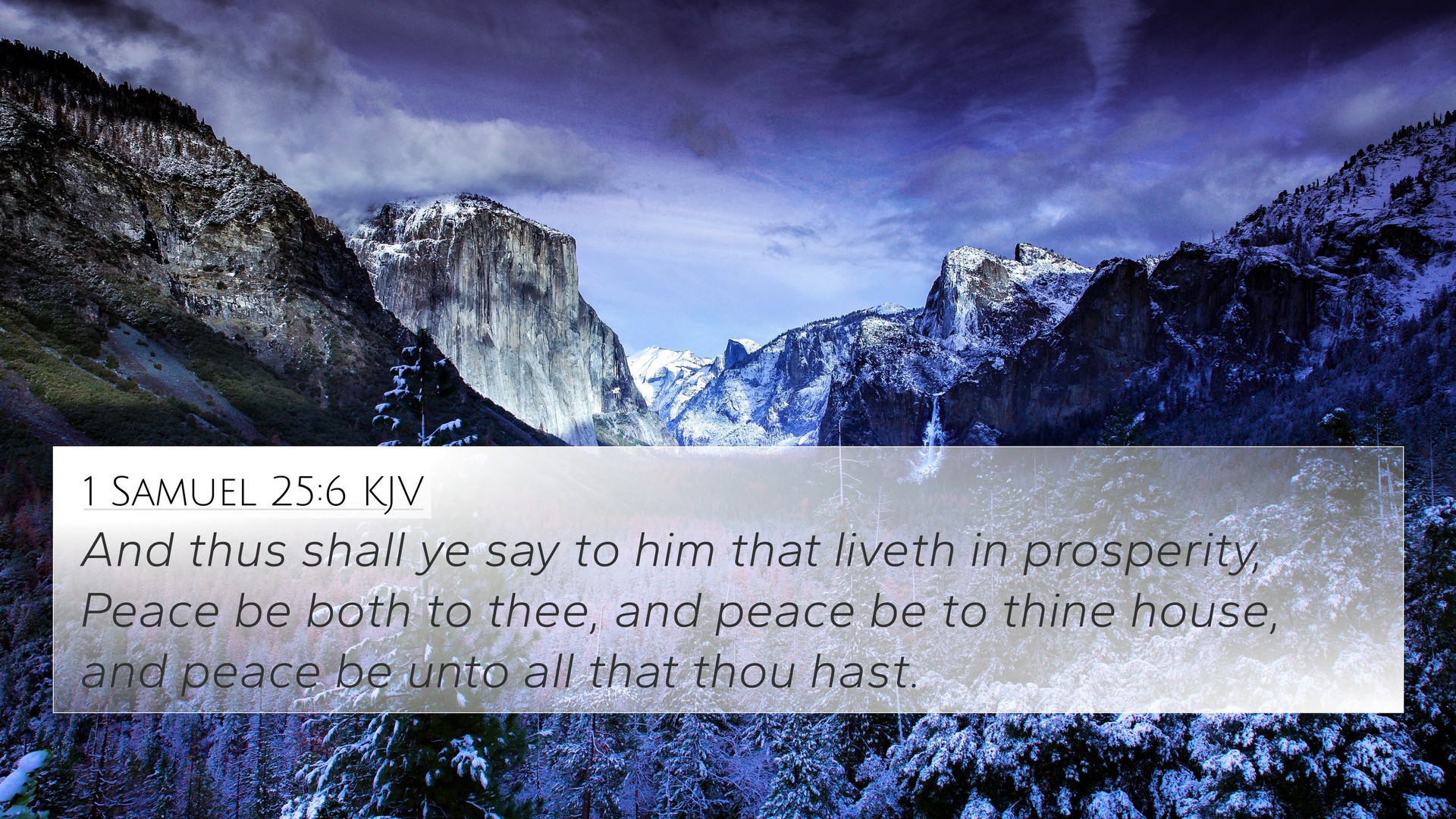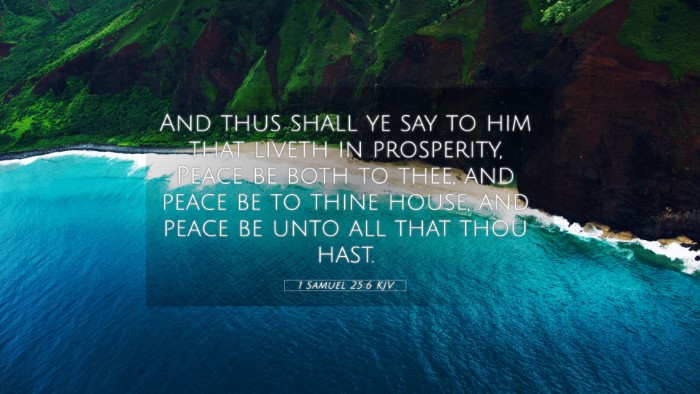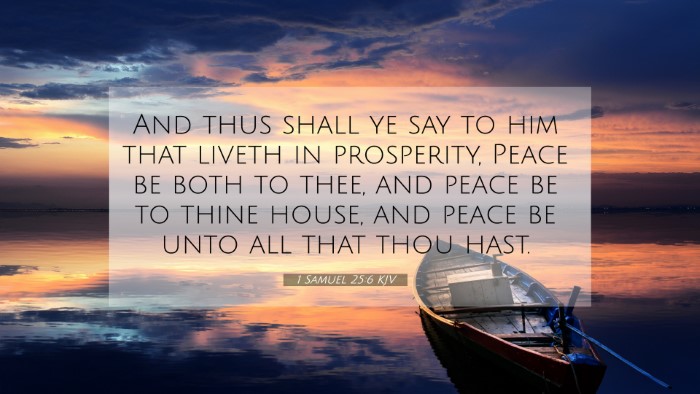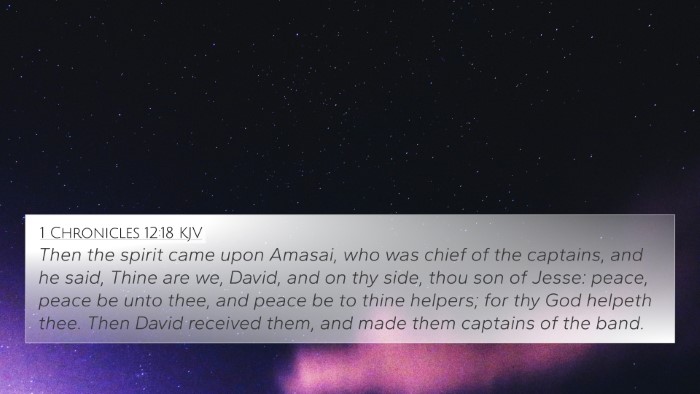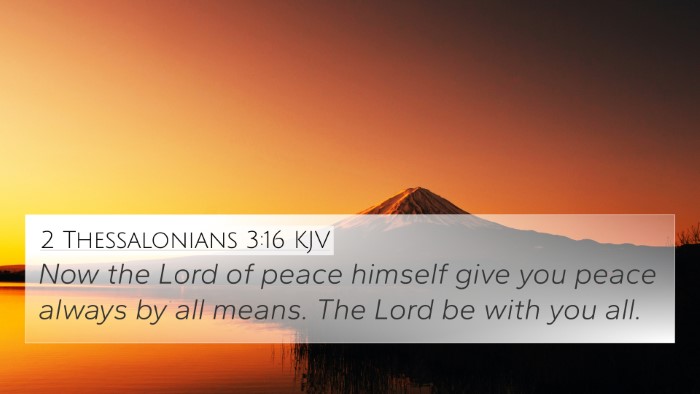Understanding 1 Samuel 25:6
Verse Text: "And thus shall ye say to him that liveth in prosperity, Peace be both to thee, and peace be to thine house, and peace be unto all that thou hast."
Summary and Explanation
The context of this verse unfolds in a significant narrative involving David and Nabal. David, a fugitive at this time, sends messengers to Nabal asking for provisions during the sheep-shearing season, which was a time of festivity and plenty.
The verse captures the essence of the message meant for Nabal, emphasizing peace and goodwill. This salutation shows the moral consideration in seeking relationships that are peaceful, even when circumstances might differ. The verse illustrates themes of respect, the importance of peace in interpersonal relations, and the approach of humility before those in positions of wealth or authority.
Commentary Insights
-
Matthew Henry:
Henry mediates on the peaceful intent behind David's message. He suggests that it reflects David's noble character, urging that he sought to engage Nabal with honor and respect, rather than hostility, establishing a foundation for future interaction.
-
Albert Barnes:
Barnes notes that such a greeting indicates a desire for cordial relations and mutual respect. He emphasizes that David, despite being wronged, aimed for peace—as he would later illustrate through his response to Nabal’s arrogance.
-
Adam Clarke:
Clarke elaborates that the phrase "peace be both to thee" encapsulates a broader wish for prosperity and harmony within Nabal’s household. Clarke highlights the importance of such greetings in the cultural context of the time, indicating a practical and meaningful approach to diplomacy in human relationships.
Related Bible Cross References
- 1 Chronicles 12:19 - Discusses alliances and supports, reflecting on the loyalty to David as king.
- Matthew 5:9 - "Blessed are the peacemakers..." aligns with the theme of promoting peace.
- Luke 10:5 - "And into whatsoever house ye enter, first say, Peace be to this house." This correlates with David's salutation.
- Proverbs 22:1 - “A good name is rather to be chosen than great riches,” which resonates with David's respect shown toward Nabal.
- Romans 12:18 - "If it be possible, as much as lieth in you, live peaceably with all men." This reflects the principle behind David's peaceful message.
- James 3:17 - The wisdom from above is "peaceable," reinforcing the significance of peace in relationships.
- Psalm 120:6-7 - The desire for peace within a nation is echoed here, similar to David's peaceful aspirations toward Nabal.
Thematic Connections
This verse serves as a model for peaceful engagement, reflecting a vital theme in scriptural narratives. Throughout the Scriptures, peace is a recurring element when establishing connections between individuals, communities, and God.
- Interpersonal Relationships: The themes of hospitality and kindness thread throughout the Bible, urging believers to act with goodwill, as exemplified by David’s respectful overture.
- Diplomacy and Responsiveness: Several passages reflect how God desires harmony among people, as seen in the New Testament teachings of Christ.
- God’s Peace: The assurance of peace in a believer's life relates to the overarching promise of God’s presence.
Conclusion
In 1 Samuel 25:6, we are reminded of the importance of approaching others, especially those of differing status or circumstance, with goodwill and a desire for peace. Such biblical principles found throughout the Scriptures invite us to reflect on our relationships and communications with others, underscoring a continuous call to maturity in our interactions, both in humility and respect. The thematic links to peace within this verse extend to a wider understanding of biblical teaching on communal harmony, emphasizing that God's desire is for mankind to engage with one another under the spirit of peace.
